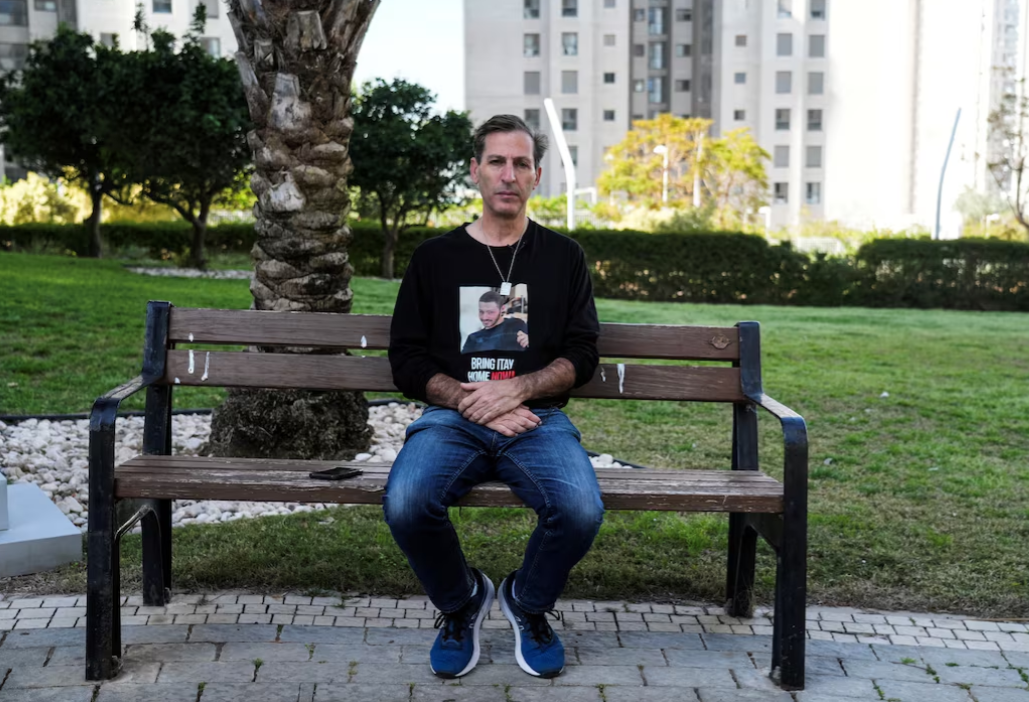Israel's Netanyahu says deal could be near for hostages in Gaza


JERUSALEM/CAIRO — Israeli Prime Minister Benjamin Netanyahu told families of hostages held in Gaza that a deal that would secure their release could be near, his office said on Tuesday (July 23), as fighting raged in the battered Palestinian enclave.
Israeli forces pressed on with a raid into Gaza's southern area of Khan Younis after ordering civilians to evacuate some districts they said had been used for renewed attacks by Palestinian militants.
Thousands of people were fleeing for safer areas as Israeli airstrikes hit, UN officials said.
Netanyahu is currently in Washington and is expected to meet US President Joe Biden later this week after making an address to Congress.
Speaking in the US capital on Monday to families of hostages, he said: "The conditions (for a deal) are undoubtedly ripening. This is a good sign."
Efforts to reach a ceasefire in the war between Israel and Hamas, outlined by Biden in May and mediated by Egypt and Qatar, have gained momentum over the past month.
"Unfortunately, it will not take place all at once; there will be stages. However, I believe that we can advance the deal and leave us in possession of the leverage to bring about the release of the others (hostages not freed in first stage)," Netanyahu said.
Ruby Chen, the father of dual US-Israeli citizen Itai Chen, a soldier whose body is being held in Gaza, was one of the family members who met with Netanyahu.
"He did say that conditions were ripening but I'm taking that with a pinch of salt," Chen told Israeli Army Radio.
Chen said he hoped Biden, who on Sunday withdrew his bid for reelection and endorsed Vice President Kamala Harris as the Democratic candidate in November's US election, would apply more pressure on Netanyahu to secure the deal.
Senior Hamas official Sami Abu Zuhri told Reuters there was nothing new in Netanyahu's stance.
"Netanyahu is still stalling and he is sending delegations only to calm down the anger of families of Israeli captives," he said.
An Israeli negotiation team was due on Thursday to resume talks that would include hostages being released in return for Palestinian prisoners held in Israeli jails. In a week-long truce in November, 105 hostages were freed in return for 240 Palestinian prisoners.
The hostages were seized in the Hamas raid into southern Israel on Oct 7 in which about 1,200 people were killed and around and 250 taken captive, according to Israeli tallies.
Hamas and other militants are still holding 120 hostages, around a third of whom have been declared dead in absentia by Israeli authorities.
The death toll among Palestinians in Israel's retaliatory offencive since then has reached more than 39,000, according to Gaza health authorities in the Hamas-run enclave. Hundreds of thousands of people have been displaced and much of the enclave laid to waste by airstrikes and artillery bombardments.

In Gaza on Tuesday, Israeli air raids hit the southern city of Khan Younis as Israeli troops and Palestinian militants fought in its shattered streets, forcing civilians to flee.
"Thousands of people on the move again, fleeing strikes & military operations. The situation is impossible. The cycle of fear & displacement has gone on too long. Everyone is exhausted," the UN's Palestinian refugee agency UNRWA said on X.
The Israeli military said dozens of militants had been killed in Khan Younis by its tanks and warplanes or in close-quarter combat. Weapon caches and tunnels used by the militants had been destroyed, it said.
Palestinian medics said one person was killed in an Israeli airstrike in the area on Tuesday, after dozens were reported killed by Israeli attacks there on Monday. Gaza's health ministry does not distinguish between combatants and non-combatants. Health officials have said most those killed have been civilians.
Further north, in Gaza City, Israeli bombing killed 16 people, medics said.
In Rafah, next to the border with Egypt where Israel has said it was stamping out Hamas' last units, an Israeli airstrike killed two Palestinians.
Hamas said its fighters were combating Israeli soldiers in Rafah. Residents said tanks have operated in most of the city, but have yet to gain full control of the northern and western areas.
[[nid:694614]]